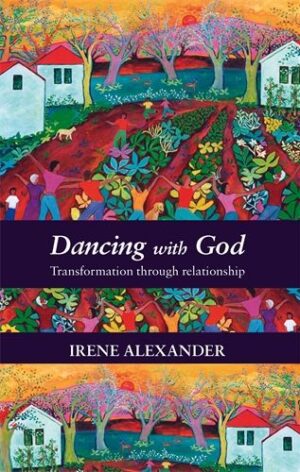



Take some time to be with Mary’s story. Or imagine yourself as her mother or father when they find out she is pregnant. Use the Ignatian way of noticing what you see, hear, small, taste, touch – and feel, to be really grounded in the story.
Try and write down something of what it is like to be inside this story. Remember what you were like as a young teenager to get in touch with what it was like for her.
Read the Magnificat that I have written on pages 68-69, or in various translations of Luke 1. What Mary speaks out is some major themes of Luke’s gospel, indeed of the New Testament.
Try writing your own Magnificat – your own “magnifying” of God – speaking of God’s character.
Read the prayer by Michael Leunig again. What do you know of giving birth to you own soul? Do you identify with the idea that it is a “difficult birth”?
How do you respond to your own imperfection? Are you able to come to God letting your imperfection be seen, knowing your undeservingness?
Do you find it more difficult to show grace to others, but not yourself? Or is it the other way around for you?
Discuss the thought of bringing forth the Christ through your own life. How do you understand this?
John O’Donohue speaks of our so-called negative qualities as being like delinquent children needing our hospitality.
Take some time to reflect on what this would mean in your life. Share this with another person.
Scott Peck, the author of The Road Less Travelled, worked with many companies and groups helping them to find what he calls “true community.” He says community requires brokenness and vulnerability. As a group are you able to share something of your woundedness and live out the grace of God to each other?
What happens to you as you read Arnold’s description of “Real perfection” on page 73? Are you able to let others see your mistakes and your weakness? This is the great counter-cultural invitation of the gospel.
Henri Nouwen is another author who speaks often of brokenness and self-rejection. Spend some time with his quotes, letting them invite you to notice your own vulnerable places – and how these lead us to the God who calls us Beloved just as we are.
The chapter finishes with a story about Francis of Assisi and Brother Leo discussing what it means to be pure in heart. What would it mean for you personally to, as Francis says, “Accept being shipwrecked”?
This chapter has many quotes. Look at them again and notice which ones speak most to your heart. Take some time responding to the invitation of one or two of these and then share them with the group, explaining what touches you.